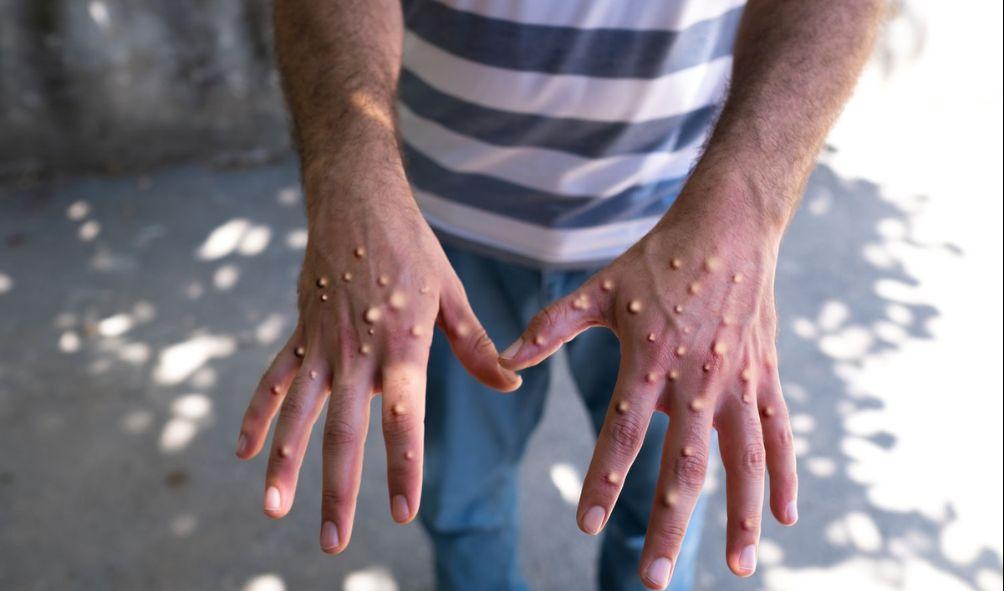WHO Reports Surge in Mpox Cases Among Men Linked to Sexual Transmission
Nine out of ten Mpox cases reported are among men, with the majority of infections spread through sexual transmission.
The World Health Organization (WHO) reveals that 87,189 out of 90,410 cases were among men, with 96% of these infections occurring through sexual intercourse. The virus predominantly affects men aged 29 to 41.
The WHO’s multi-country outbreak report compiled data from national authorities up to June 30, 2024.
The report, released yesterday, highlights that sexual contact is the most frequently reported mode of Mpox transmission worldwide, with 19,102 out of 22,801 cases linked to sexual contact, followed by non-sexual person-to-person transmission.
“This trend has continued over the last six months, with 97% of new cases linked to sexual contact. Among symptomatic cases, genital rash is the most common symptom, followed by fever and systemic rash,” the report states.
The report further notes that sexual transmission of Mpox has been documented in the Democratic Republic of Congo, particularly among sex workers and men who have sex with men. In some cases in the Democratic Republic of Congo, individuals presented only with genital lesions, rather than the more typical widespread rash associated with the virus.
The WHO also detailed that Mpox spreads through oral, vaginal, or anal sex with an infected person. Individuals with multiple or new sexual partners are at the highest risk.
ALSO READ:
- Inside Job Exposed: Kenyan Prison Wardens Convicted for Orchestrating Daring Terrorist Escape
- Uganda Pulls the Plug: Nationwide Internet Blackout Ordered Days Before Crucial General Election
- African Elections Under the Spotlight as Zambia Turns to Kenya Ahead of 2026 Vote
- “Two Drug Barons in Cabinet?” Kenya Government Fires Back as Ex-Deputy President Sparks Explosive Drug Claims
- Kenyan Court Freezes Use of Private Lawyers by Government, Sparks Nationwide Legal Storm
“Anyone with new or unusual rashes should avoid sexual activity or close contact with others until tested for sexually transmitted infections (STIs) and Mpox. The rash may also appear in hidden areas, such as the genitals,” WHO advises.
To reduce the risk of sexual transmission, WHO recommends open communication with partners about Mpox symptoms and risks, informing partners of any symptoms, abstaining from sex, and limiting the number of new sexual partners.
Additional recommendations include consistent condom use, avoiding group sex, avoiding sex in venues like cruising bars, saunas, and darkrooms, and avoiding the use of alcohol or drugs in sexual situations.
“Although the Mpox virus has been detected in semen, it is not yet confirmed whether it can be spread through semen or vaginal fluids.
“Condoms may not fully protect against Mpox, but they can reduce the risk of exposure and help prevent HIV and other STIs. People recovering from Mpox are advised to use condoms for 12 weeks after recovery,” WHO states.
Mpox is a viral zoonotic disease, primarily found in the tropical rainforest regions of Central and West Africa. Symptoms include skin rash, fever, sore throat, headache, body aches, back pain, low energy, and swollen lymph nodes.
ALSO READ: Kioni Denounces Odinga’s Allegations, Accuses Raila of Misleading Public on Kenyatta’s Role in Ruto Deal
The virus mainly spreads through close person-to-person contact, particularly skin-to-skin contact, exposure to contaminated materials, and sexual contact.
Higher risk groups for Mpox include close contacts of infected individuals, healthcare workers, people handling wild animals, laboratory workers, children, pregnant women, immunocompromised individuals, and those with multiple sexual partners.
Mpox can also be transmitted through contaminated items like bedding, clothing, eating utensils, and sex toys.
Mpox cases have been confirmed in Burundi, Kenya, Rwanda, and Uganda in Eastern Africa, marking the disease’s first emergence in these countries.
However, Mpox is endemic in several African countries, including Benin, Cameroon, the Central African Republic, the Democratic Republic of Congo, Gabon, Ghana, Ivory Coast, Liberia, Nigeria, Sierra Leone, and South Sudan.
Globally, Africa recorded the highest number of cases in June, with 567 infections, followed by the Americas with 175 cases, Europe (excluding the Eastern Mediterranean region) with 100 cases, the Western Pacific with 81 cases, and Southeast Asia with 11 cases.
Between January 1, 2022, and June 30, 2024, a total of 99,176 laboratory-confirmed Mpox cases, including 208 deaths, were reported across 116 countries within all WHO regions.
WHO Reports Surge in Mpox Cases Among Men Linked to Sexual Transmission
